Ryzen Versus Core i7 In 11 Popular Games
3DMark Physics, Ashes of the Singularity, Battlefield 1 & 4
3DMark Physics
3DMark's DX11 physics and DX12 CPU tests give us a good (albeit synthetic) measure of processing resources available to a game engine.
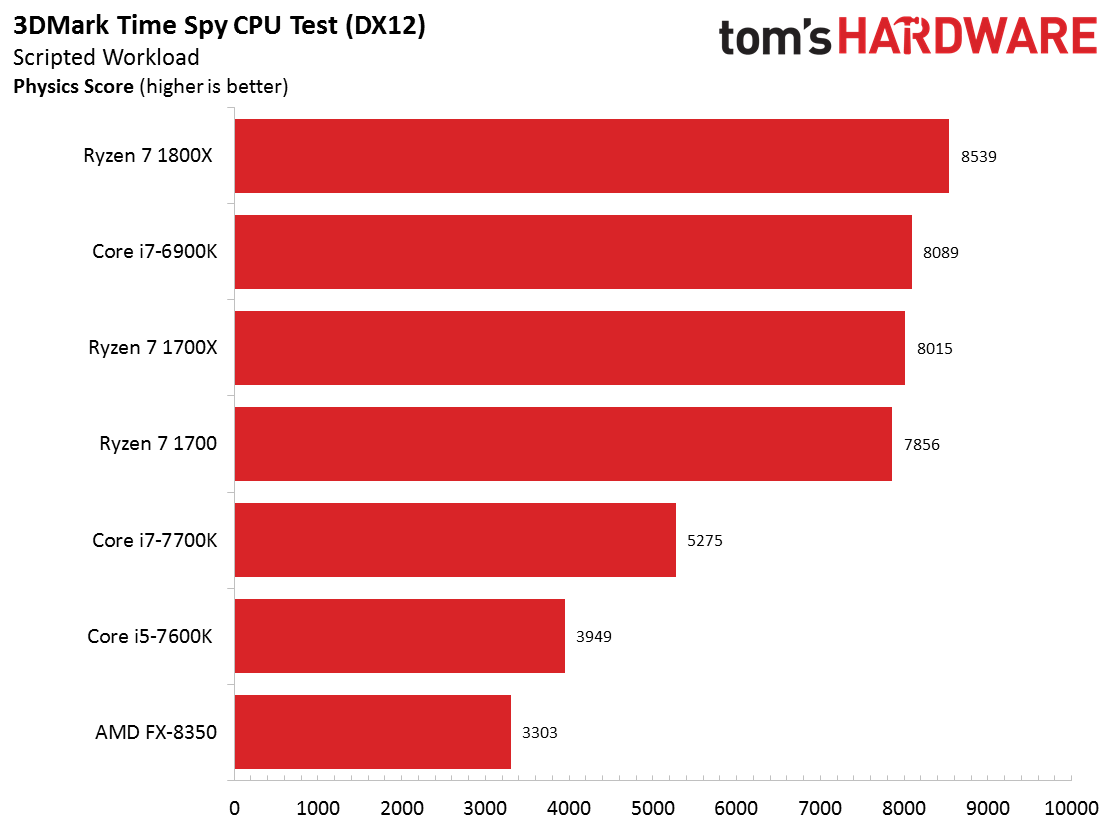
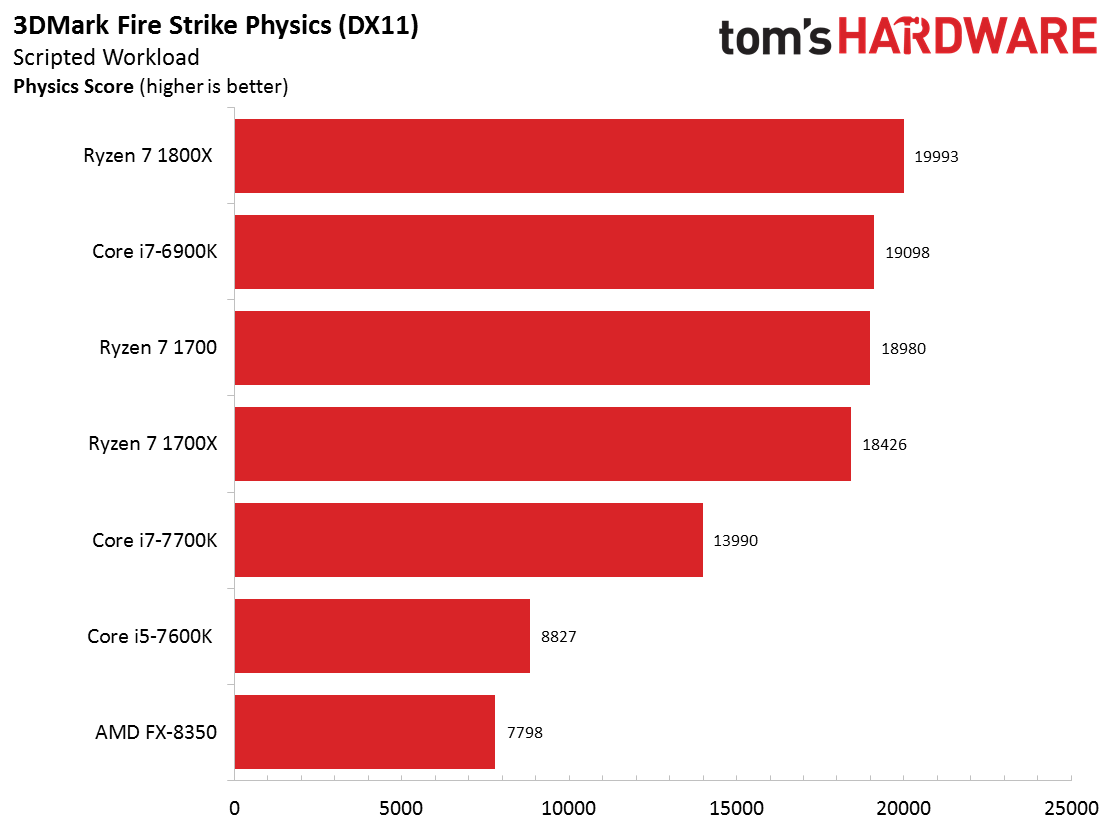
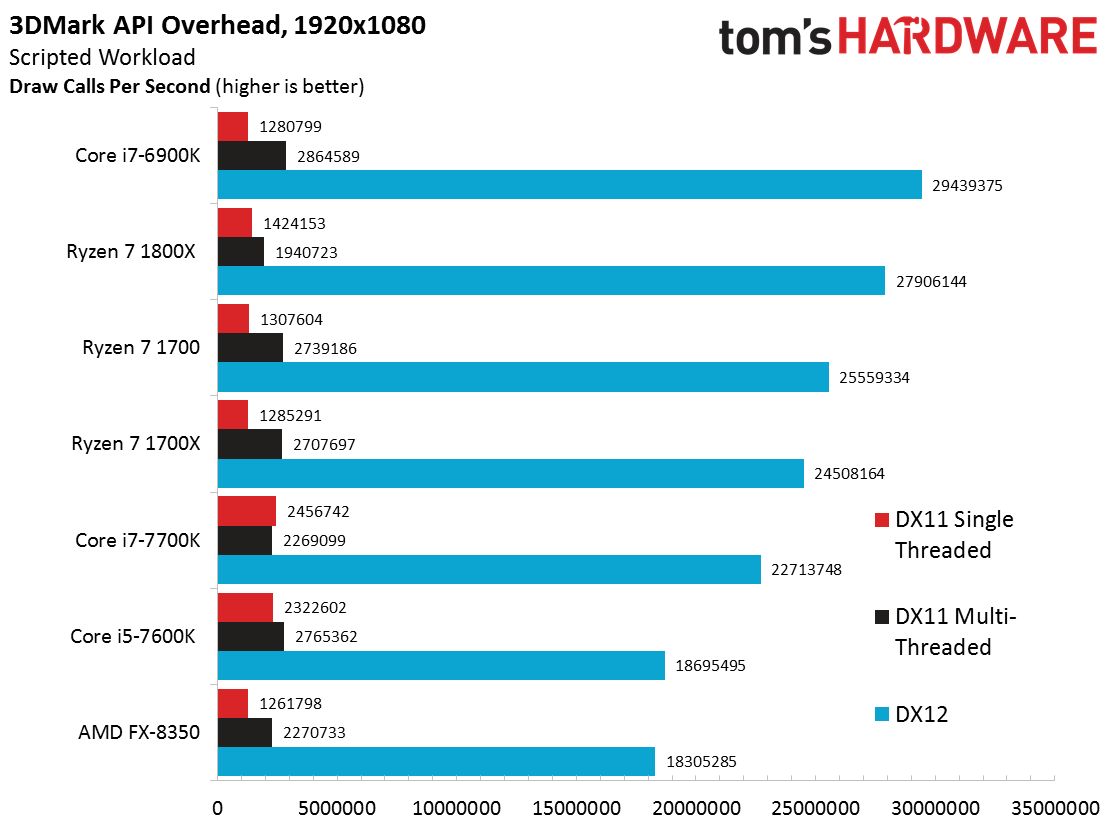
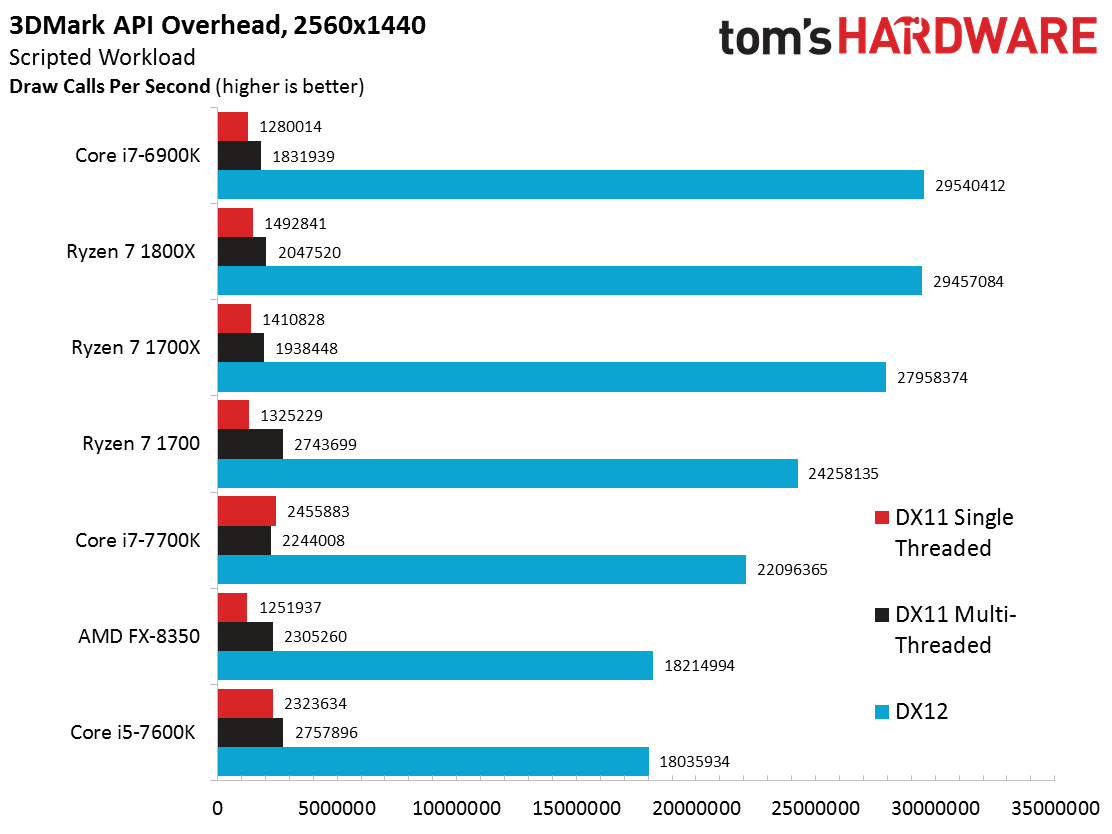
The Time Spy metric illustrates DX12-based CPU scaling based on its demanding physics simulation, occlusion culling, and procedural generation operations. This test shows Ryzen 7 1800X with a healthy lead over Intel's Core i7-6900K, while Ryzen 7 1700X and 1700 outpace the Kaby Lake CPUs with lower core counts.
Futuremark's DX11 Fire Strike benchmark runs 32 parallel soft and rigid body physics simulations that tax the processor specifically. We see the same trends emerge in this benchmark, though Ryzen 7 1700 curiously beats the 1700X, even after repeated tests.
The system initiates thousands of draw calls per frame rendered, so 3DMark's API Overhead metric is interesting as well. Intel's Core i7-6900K establishes a healthy lead with DX12 draw calls at 1920x1080, but provides fewer DX11 single-threaded draw calls during the test.
Ashes of the Singularity
Ashes of the Singularity is notoriously CPU-bound, responding well to higher core counts and clock rate. But the Ryzen CPUs lag behind Intel's Broadwell-E- and Kaby Lake-based chips by a significant margin. Even the four-core, non-Hyper-Threaded Core i5-7600K beats the 16-thread Ryzen 7s.
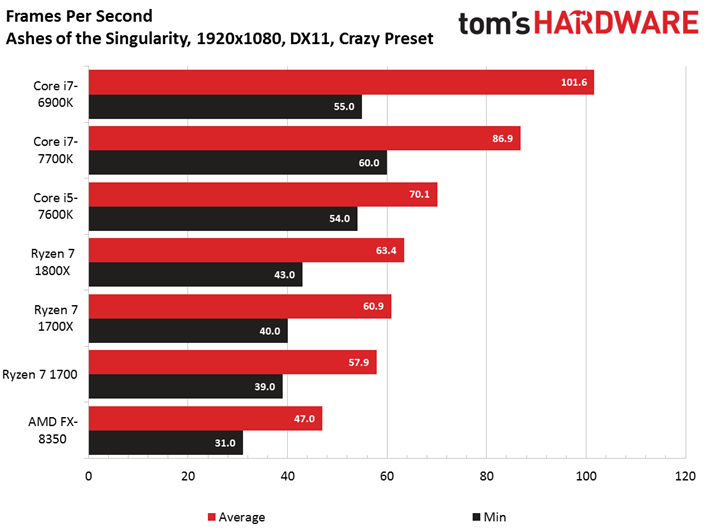
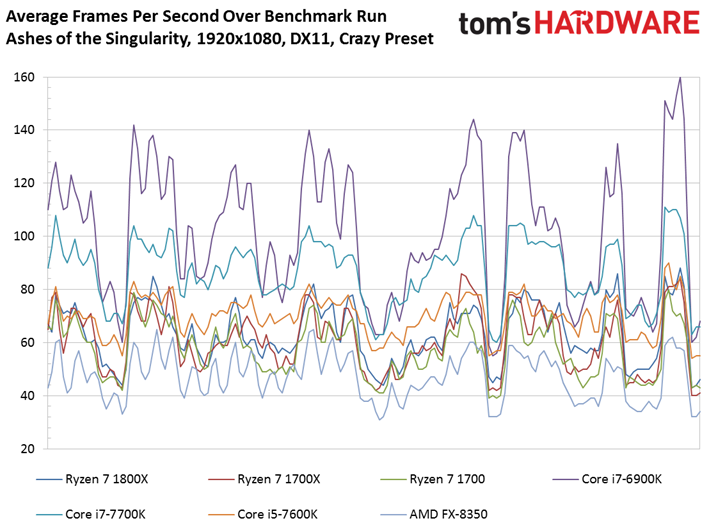
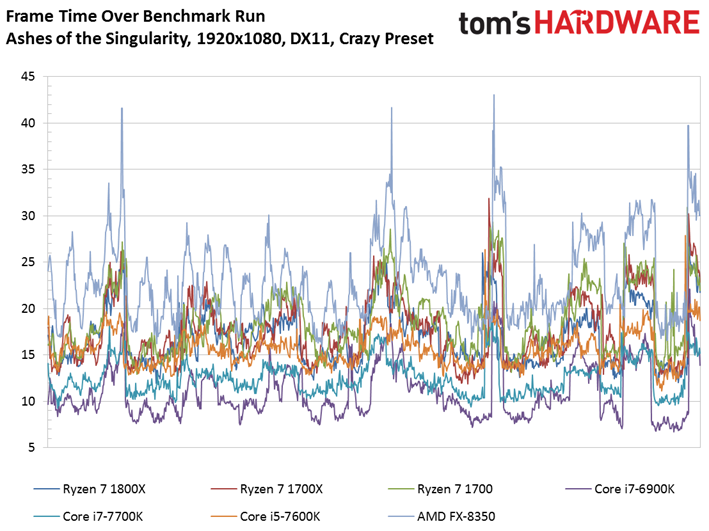
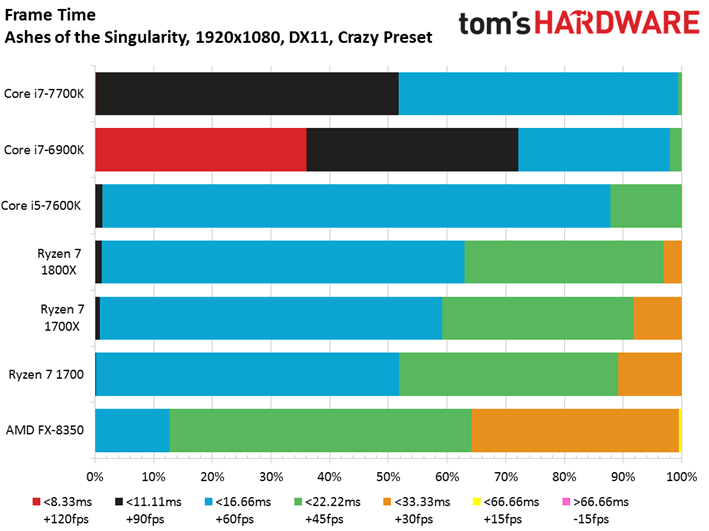
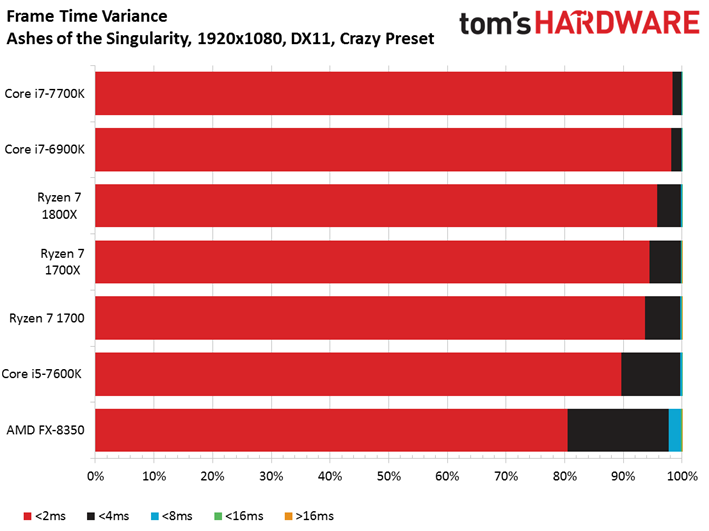
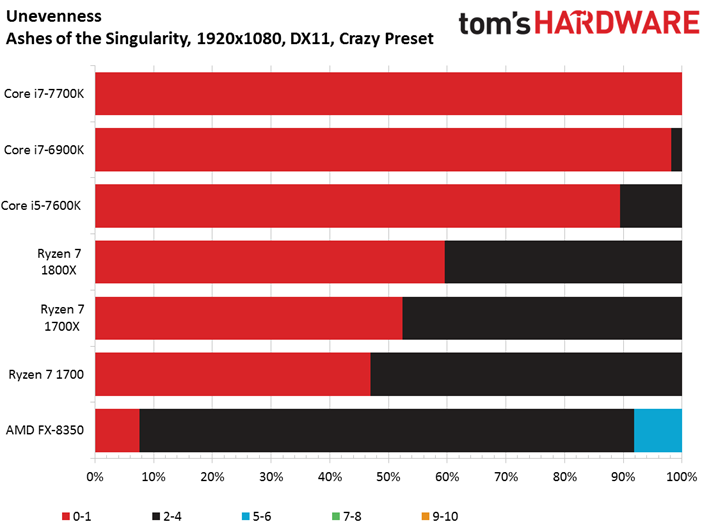
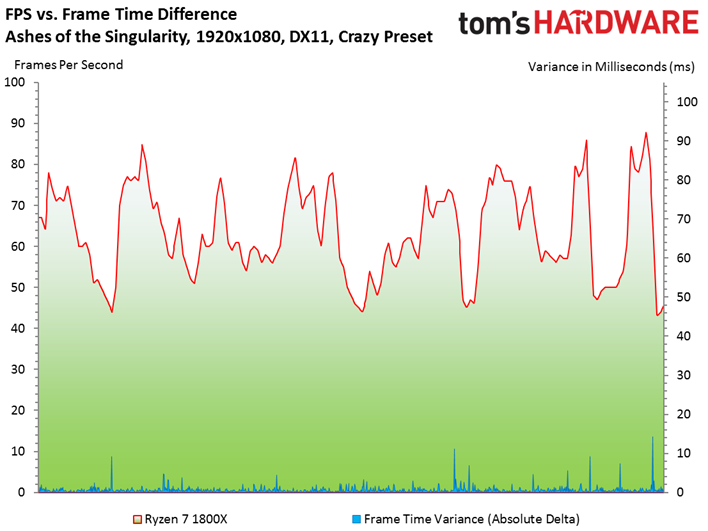
We noticed a pronounced speed-up in our Ryzen 7 1800X review when we disabled SMT on the AMD platform, so it's clear that Ashes isn't utilizing this architecture to its fullest. Oxide Games released a statement saying that it plans to optimize for Zen, so a performance improvement is expected in the future. We didn't see any sort of time commitment, though.
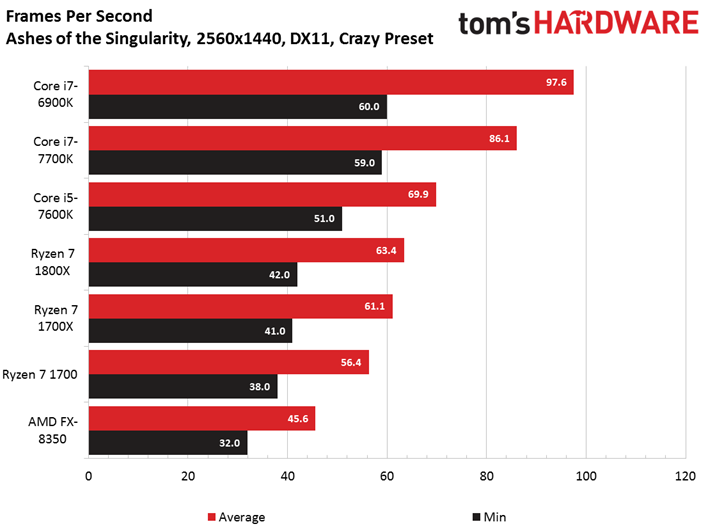
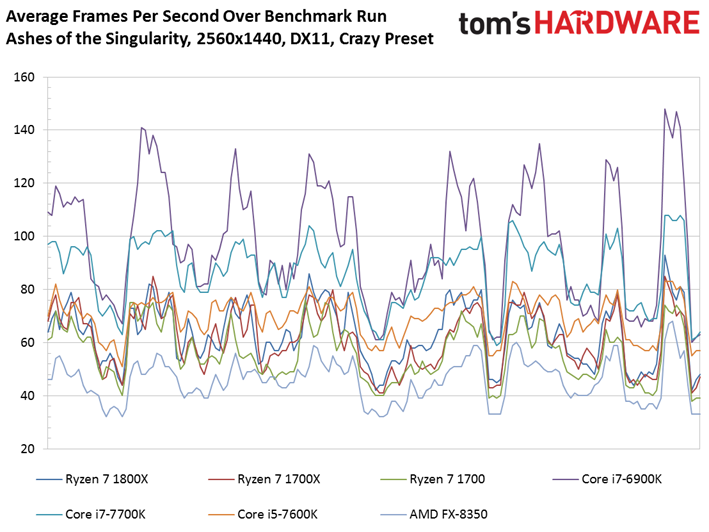
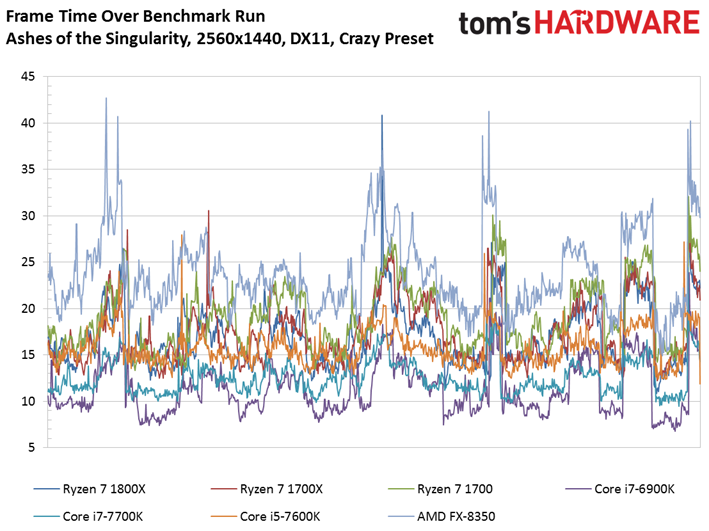
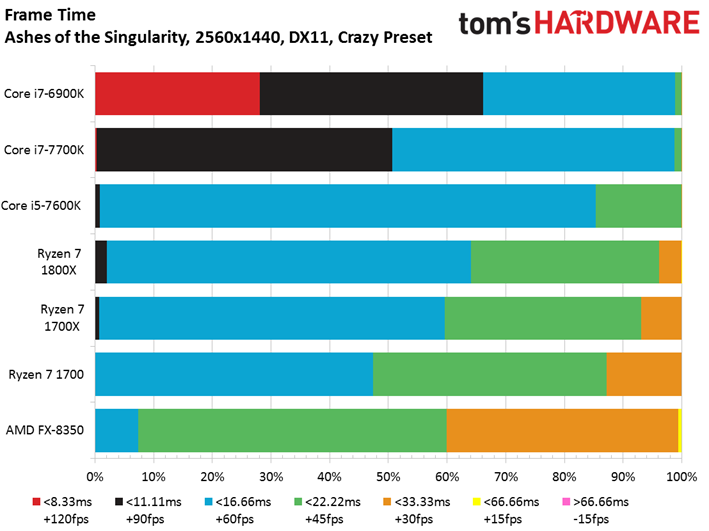
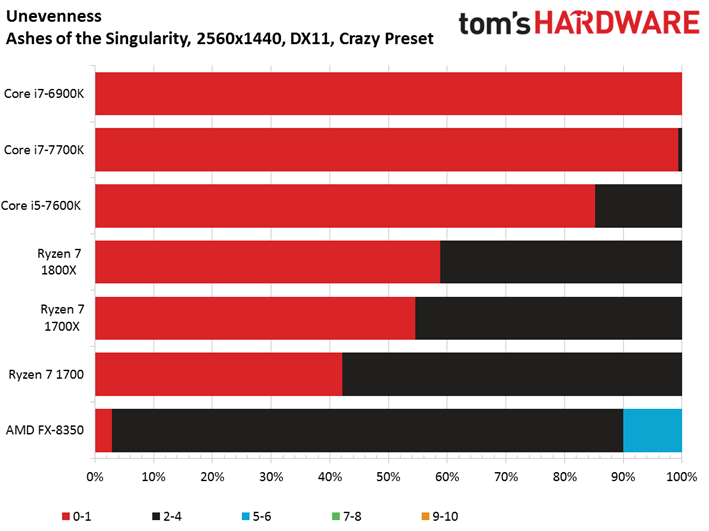
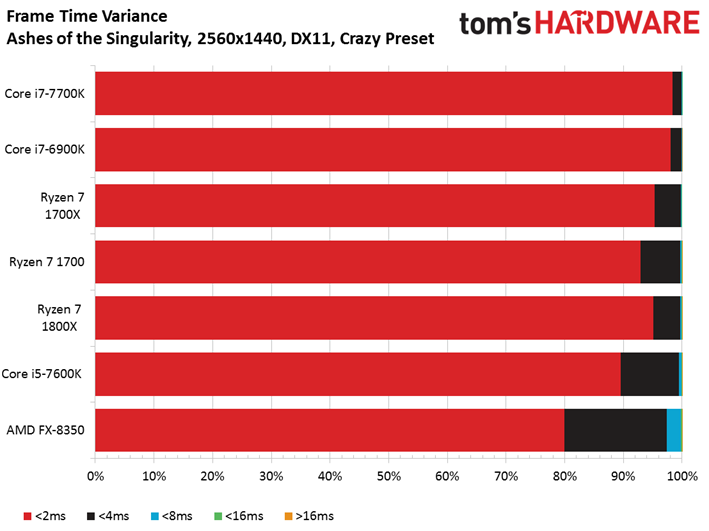
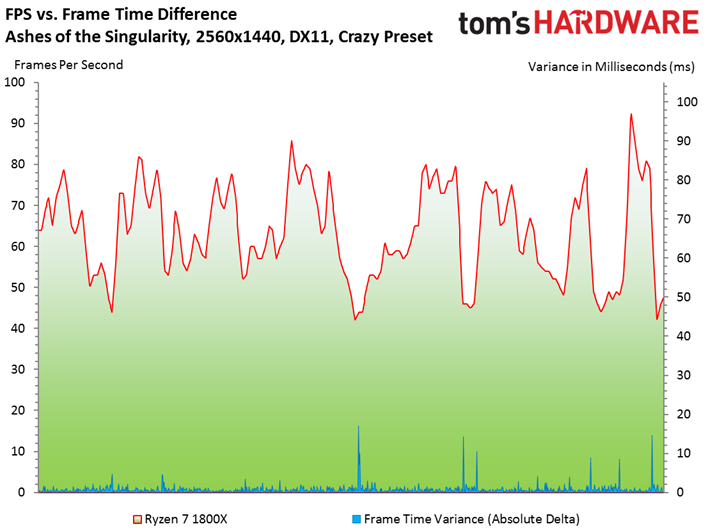
Benchmarks run at 2560x1440 give us a look at high-resolution gaming without hitting the GPU bottleneck imposed by 4K. And while the frame rates do drop a bit, Core i7-6900K continues dominating with its eight-core, 16-thread configuration. AMD's FX-8350 suffers the highest frame time measurements during the test run, and the Core i5-7600K experiences more frame time variance than the Ryzen 7 processors.
Get Tom's Hardware's best news and in-depth reviews, straight to your inbox.
Battlefield 1
We cranked Battlefield 1's quality settings to Ultra to represent a normal gaming experience with a beefy GPU, then we repetitively took the armor-laden walk at the opening scene of O La Vittoria. Intel CPUs take the lead again, but there is less separation between them and the Ryzen 7s.
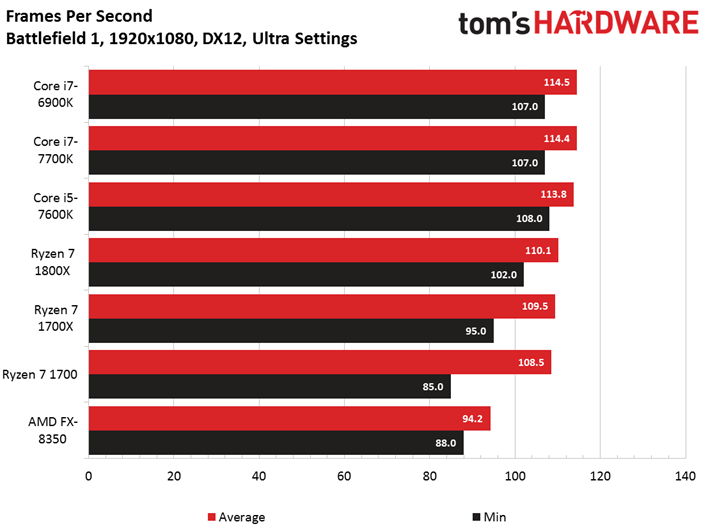
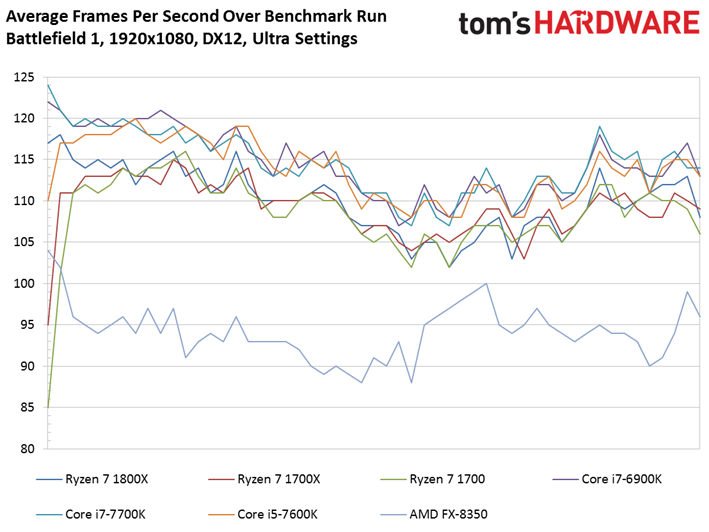
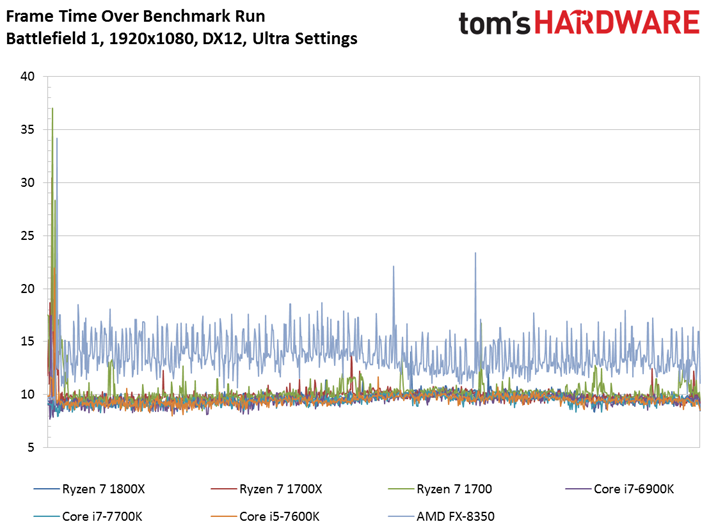
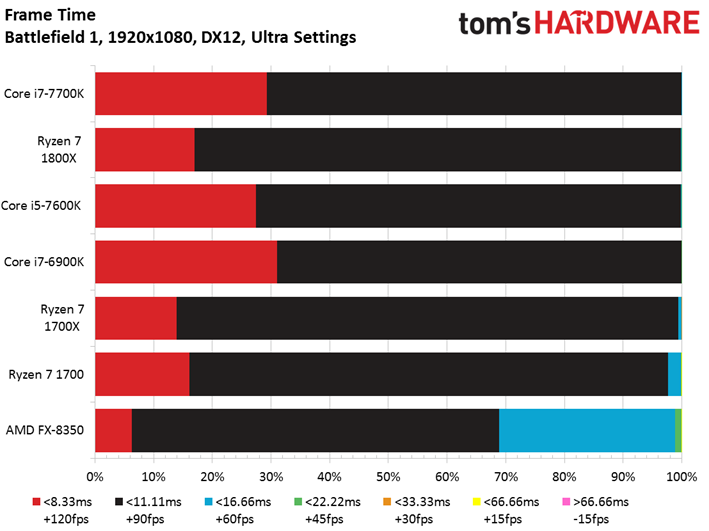
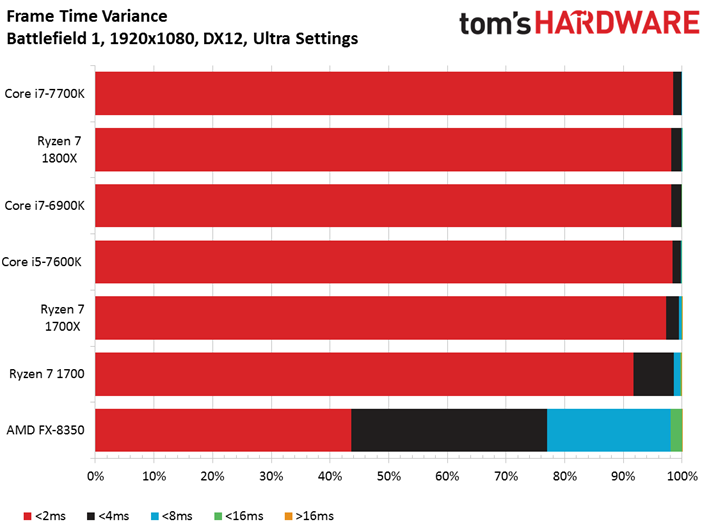
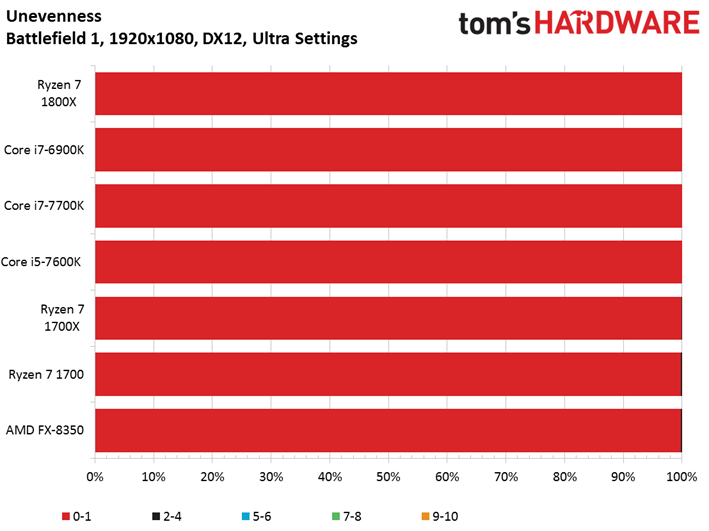
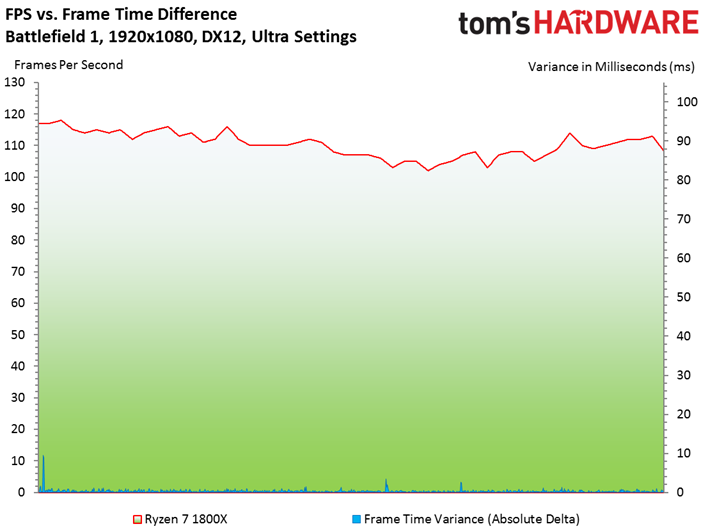
There is also little differentiation between the three Ryzen SKUs; the purportedly value-oriented 1700 lags the $500 1800X by 1.6 FPS on average. All of the Ryzen 7s seem to offer similar overclocking headroom, so the 1700 might stand out as a good selection due to its $330 price point. Then again, a Core i5-7600K sells for $240 and has much more room to overclock.
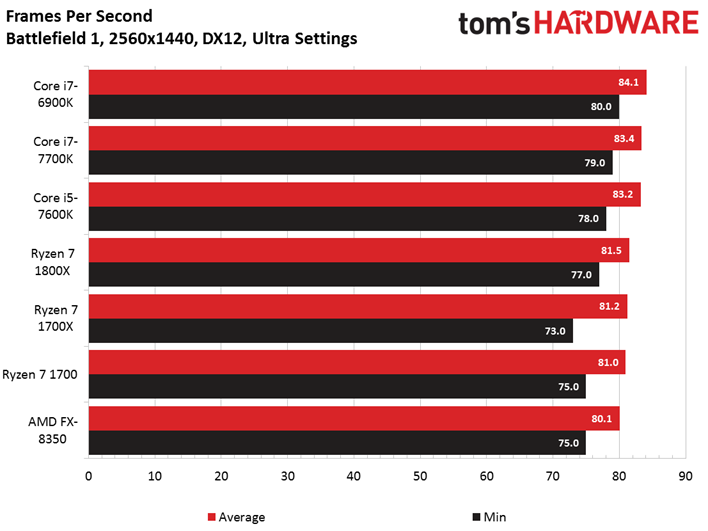
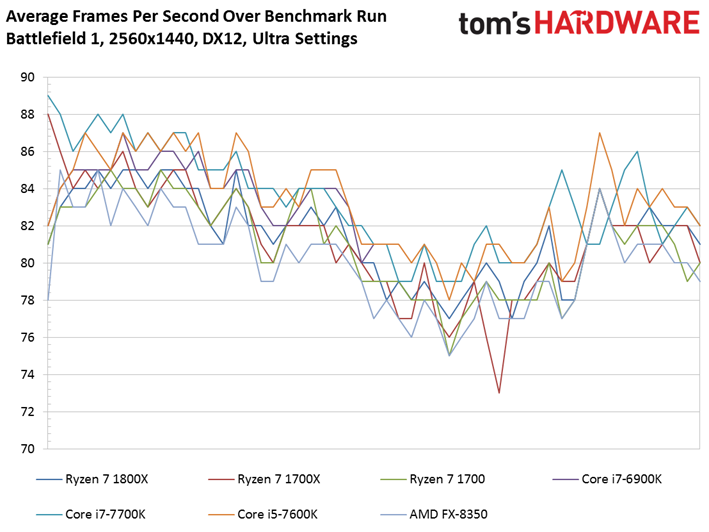
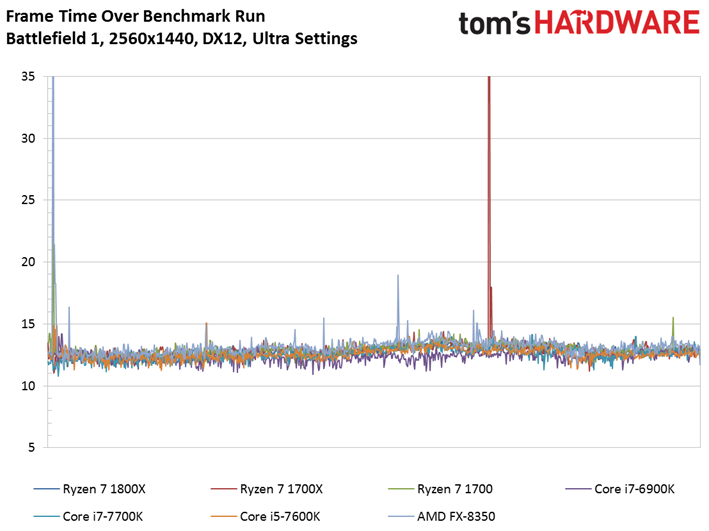
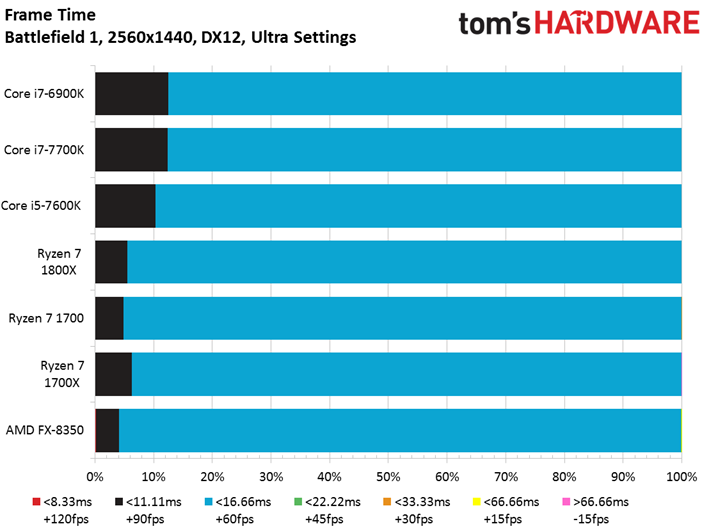
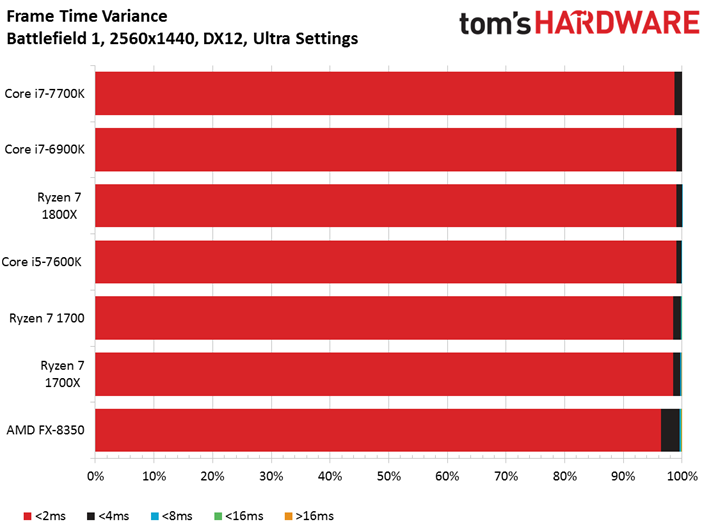
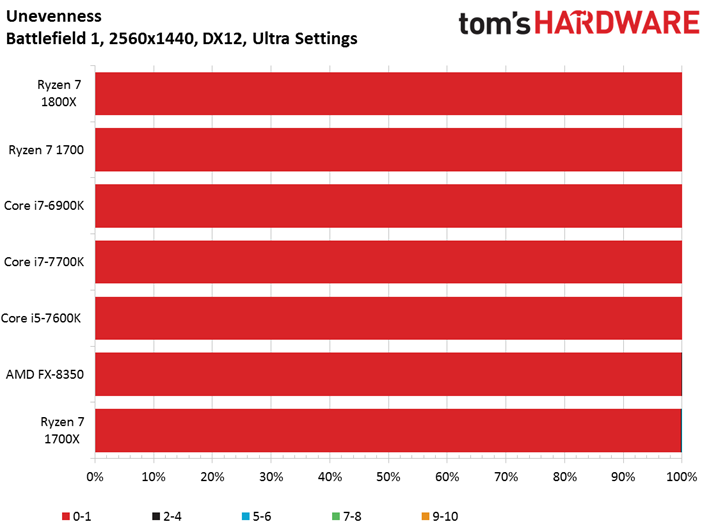
Although the game engine rewards Intel's Core i7-6900K with a lead over the rest of the test pool, the CPUs fall into the same finishing order. AMD's Ryzen processors trail Intel's chips, but we notice less separation between the three Ryzen 7 SKUs. Incidentally, all of these CPUs provide a smooth gaming experience, though the FX-8350 predictably demonstrates the most frame time variance.
Battlefield 4
Our Battlefield 4 tests consist of a bumpy jeep ride through hostile territory at the beginning of the Tashgar level. This benchmark appears wholly graphics-bound (there's an average of 1.3 FPS separating the CPUs we're evaluating).
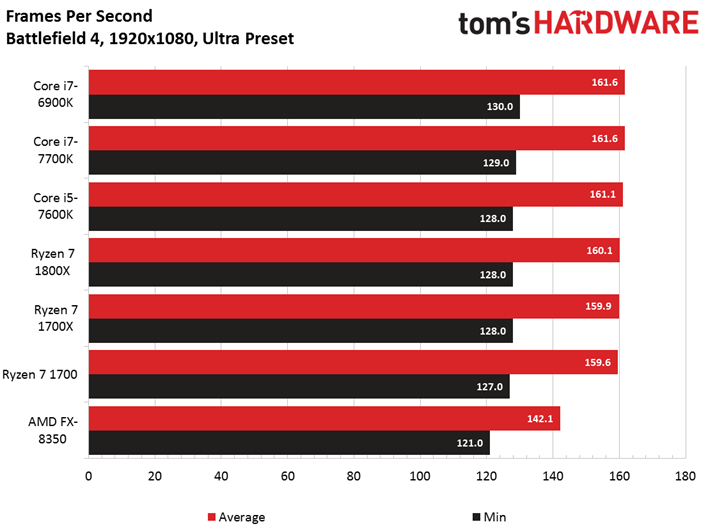
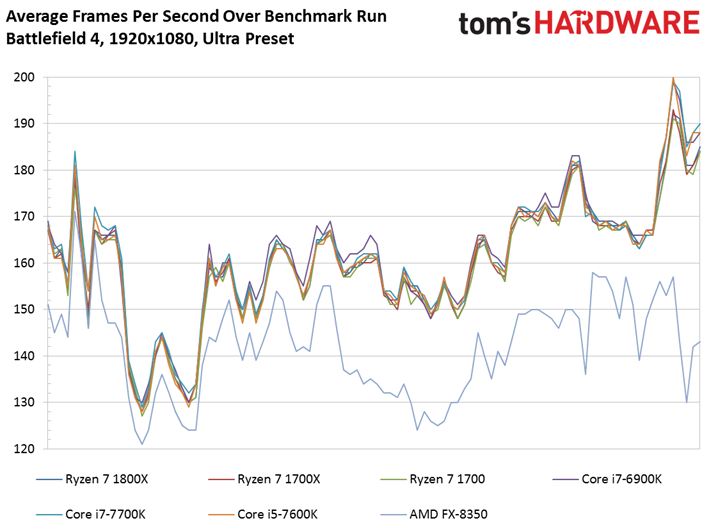
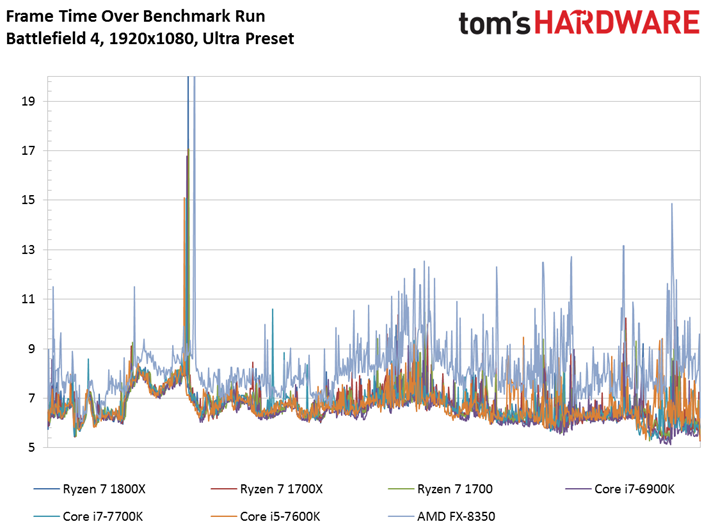
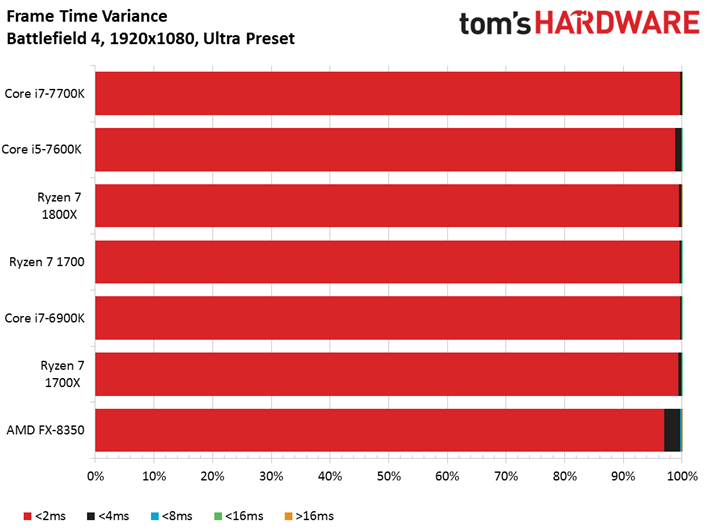
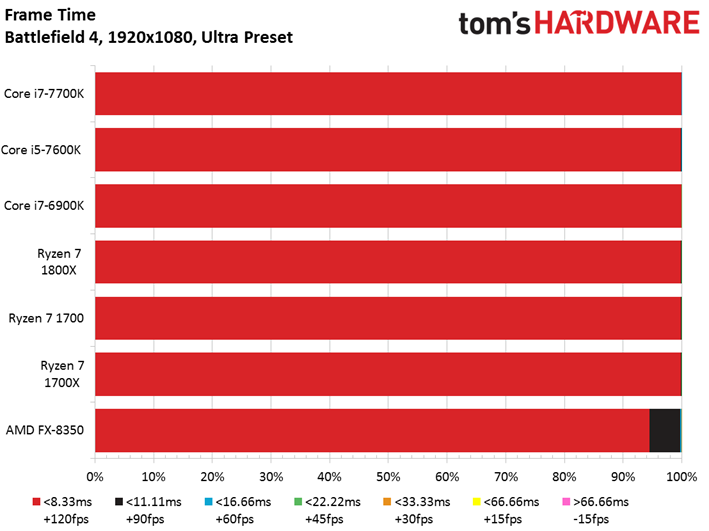
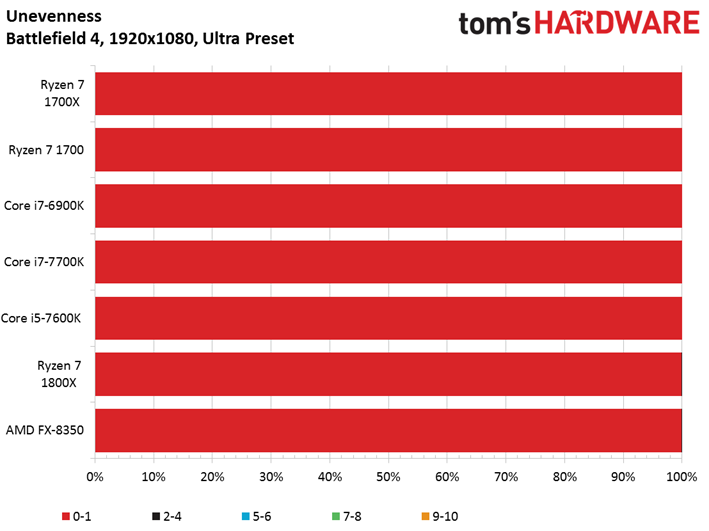
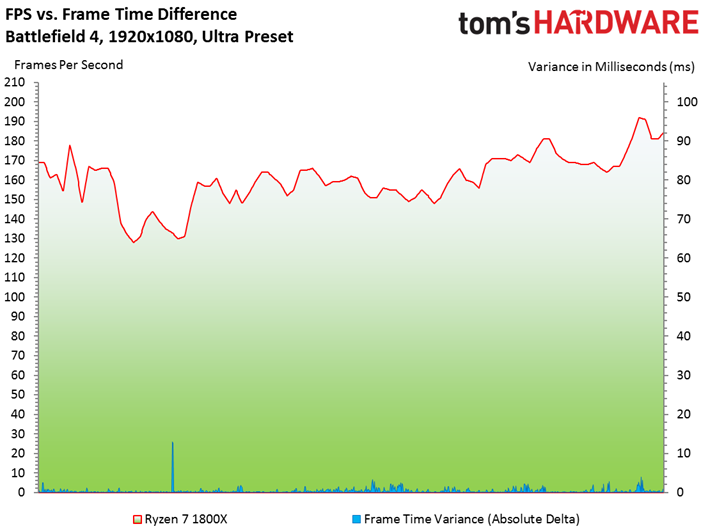
Due to the GPU-imposed ceiling, we observe similar frame time variance for all of the processors, except for AMD's aging FX-8350.
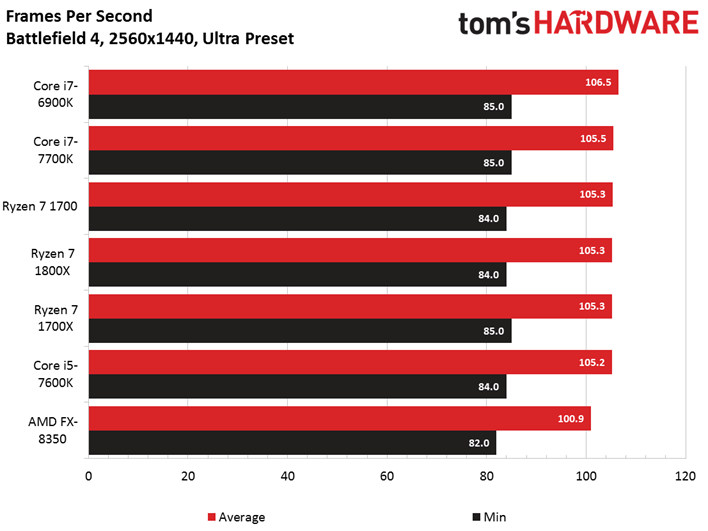
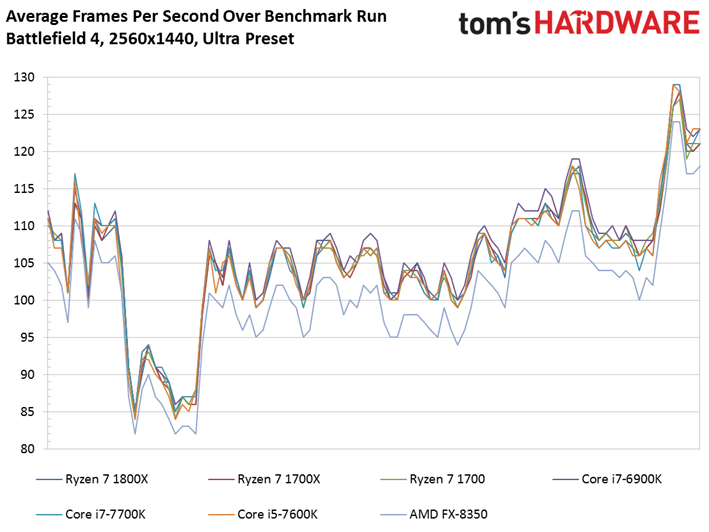
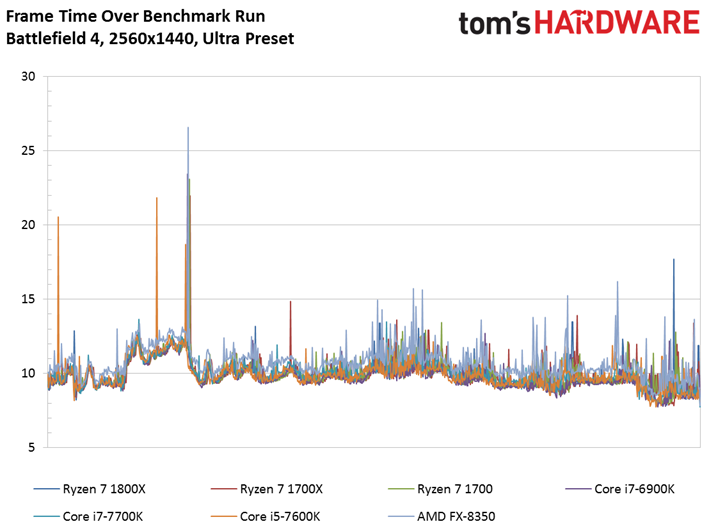
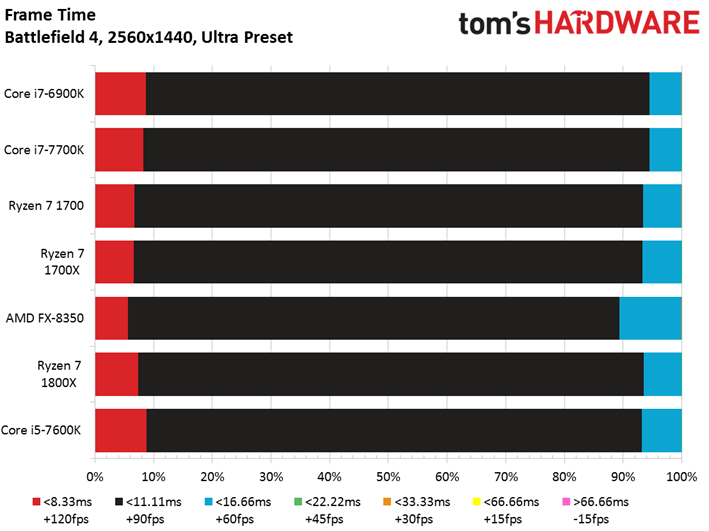
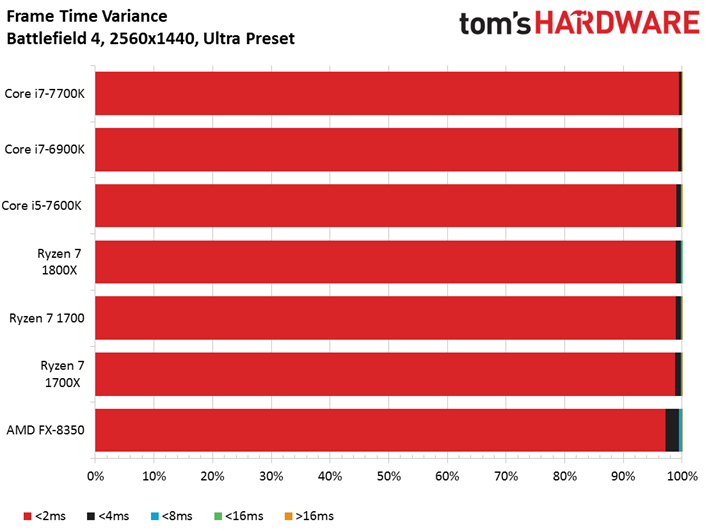
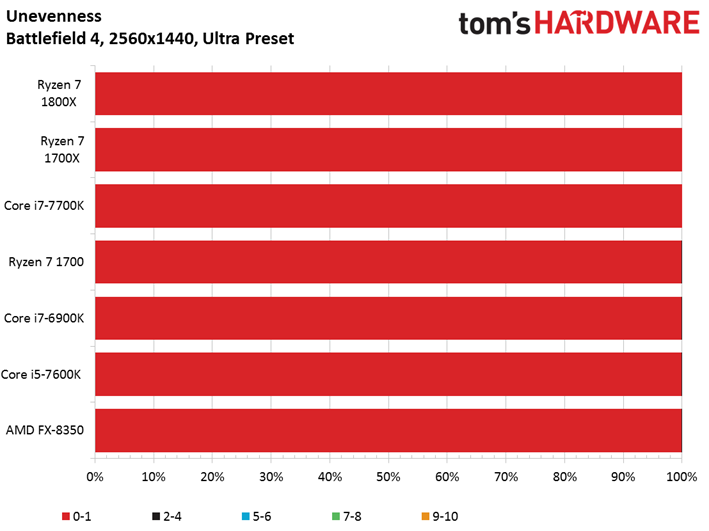
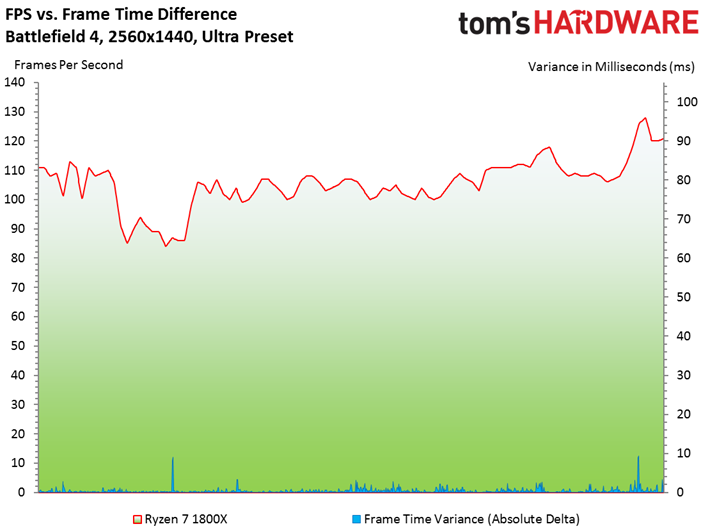
The Ryzen processors effectively tie Intel's Core i5-7600K in this test. Looks like there's truth to AMD's claim that Ryzen's gaming performance is best when you're wholly GPU-bound.
Current page: 3DMark Physics, Ashes of the Singularity, Battlefield 1 & 4
Prev Page Performance Power Profiles and Test Platforms Next Page Civilization VI AI & Graphics Test, Deus Ex: Mankind Divided, GTA V
Paul Alcorn is the Editor-in-Chief for Tom's Hardware US. He also writes news and reviews on CPUs, storage, and enterprise hardware.
-
Overall good CPU but compared to Intel it sucks. You are better with Kaby Lake. AMD CPU needs this, that or that...same story as with their video cards. Wait for performance increase which happens but by that time competitor has newer generation product. Look at difference between Nvidia and AMD high end offering.Reply
Almost forgot...to me a real upgrade is going to be Intel 2066 socket. -
Sakkura Most of these performance differences are not that relevant. I mean if you have a 60Hz monitor, practically all these tests max that out.Reply
So Ryzen is definitely better value for money than Broadwell-E even for gaming. Neither of those can currently match Kaby Lake, but they're not supposed to anyway. Ryzen 3/5 will compete with Kaby Lake by being cheaper and presumably only a little slower, and thus better value for money. -
Paul Alcorn Reply19423857 said:Were all the test cpus at stock clocks?
Yes, we tested at stock clocks. -
Rookie_MIB Well, what I gather from this round up is that Ryzen 7 series is a workstation CPU which can game decently well. So - if you use your computer for productivity (video processing, VMs, compiling etc) in addition to gaming, it's the processor to buy. It's vastly less expensive that Broadwell-E, and performs as well (if not better) in some regards.Reply
If your computer is used for gaming first with some secondary workstation uses, you're better off with Kaby Lake. The almost 5ghz clock speeds rule for gaming where it's not highly optimized for higher thread counts.
My Ryzen 7 1700 arrives today BTW. :D :D :D
I am definitely curious to see how the APU's which are coming fare. An actual decent x86 architecture with a really good IGP? If they could stick a 2GB hunk of HBM on it.... lordy that would be fast. -
BulkZerker Anyone remember when disabling hyperthreading got you an fps boost in video games (ffs that was an issue in battlefield 3)? Its that, all over again.Reply -
mitch074 To be expected - most current games are developed to make use of 4 threads on Intel CPUs, no more no less, once compiled on PC.Reply
As for "it should have been finalized before release", yeah right - even consoles need firmware updates once out to fix non-optimal settings. And if the situation under Linux is any indication, even Intel isn't exempt - they had to rewrite a whole new power management scheme to make use of Sandy Bridge, and even then you may end up with a frozen system now and again if you don't disable power management. We're talking SERVERS here, people! the kind of machine that runs 24/7 and thus working power management means real MONEY!
So to me, a grounds up brand new CPU architecture (something Intel hasn't done in more than 5 years) that works reliably out of the box and can beat the established champion in several benchmarks and real-world tasks for half the price is a GREAT accomplishment. And if Deus Ex and Shadow of Mordor are any indication, Ryzen can indeed kick Kaby Lake in the butt when properly used.
What can be understood from this article is that, CURRENTLY, AMD's Ryzen isn't the best gamer CPU out there as games aren't geared towards it yet. You can game properly with it though, and it more than likely will get faster with time. If you need to build a gaming rig today, go Kaby Lake; if you're building a workstation, go Ryzen - knowing you can game on it too. If you can wait a few months though, all bets are off.
As for AMD's performance in the GPU market, look at how many GameWorks games are out there, and how fast AMD's performance climbs up after game release (from a couple of weeks to a few months) - while it took almost a full year for Nvidia to catch up on DX12 performance!